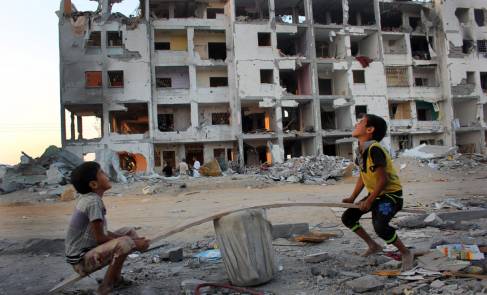“I have survived the past three wars, but that is not the problem. In this place, wars come and go. The bigger struggle is not to lose hope. The only way I can do that is to retreat, and create my own world, and become oblivious.” This was told to me by 36-year old Ali, who works as a waiter in one of the coffee shops in Gaza city.
Ali was born in Gaza and for almost ten years has been living under a tight blockade on air, land and sea, entering its tenth year in June 2016. The blockade keeps him and the rest of the 1.8 million people of Gaza isolated and locked into a tiny 365 square kilometres-enclave – the Gaza Strip has one of the highest population densities in the world – tormented by extreme poverty and dilapidated by repeated conflicts.
Chronic fuel and electricity shortages, with power cuts between 18 and 22 hours per day, extreme water pollution – 95 per cent of the Gaza groundwater is undrinkable – and devastated infrastructure, as a dire reminder of repeated cycles of armed violence, are the daily reality. Gaza’s people are denied a human standard of living. This was not always the case: before the imposition of restrictions on movements of people and goods, the Gaza Strip was a relatively developed society with a productive base and a thriving economy.

